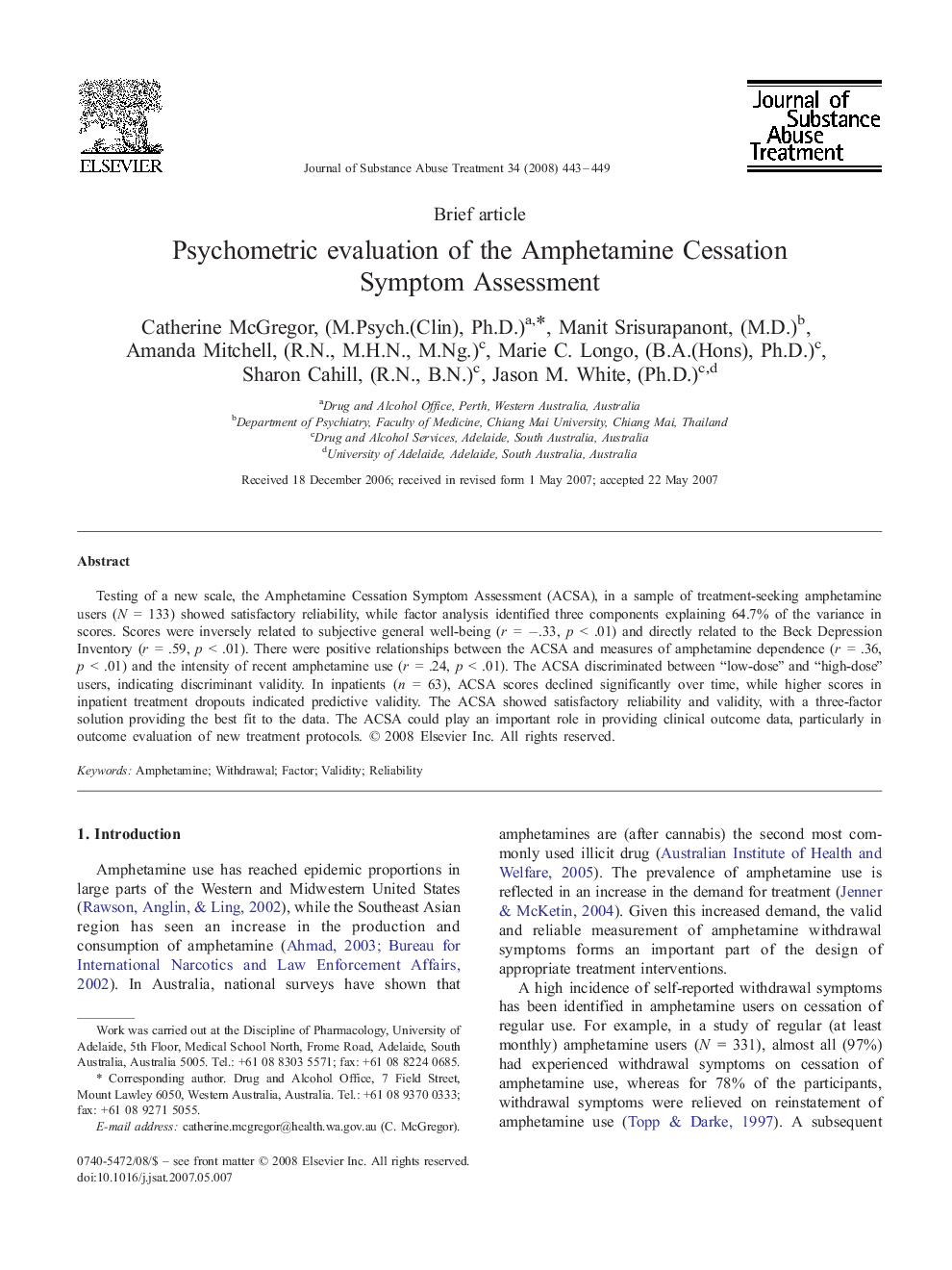| کد مقاله | کد نشریه | سال انتشار | مقاله انگلیسی | نسخه تمام متن |
|---|---|---|---|---|
| 328569 | 543280 | 2008 | 7 صفحه PDF | دانلود رایگان |

Testing of a new scale, the Amphetamine Cessation Symptom Assessment (ACSA), in a sample of treatment-seeking amphetamine users (N = 133) showed satisfactory reliability, while factor analysis identified three components explaining 64.7% of the variance in scores. Scores were inversely related to subjective general well-being (r = −.33, p < .01) and directly related to the Beck Depression Inventory (r = .59, p < .01). There were positive relationships between the ACSA and measures of amphetamine dependence (r = .36, p < .01) and the intensity of recent amphetamine use (r = .24, p < .01). The ACSA discriminated between “low-dose” and “high-dose” users, indicating discriminant validity. In inpatients (n = 63), ACSA scores declined significantly over time, while higher scores in inpatient treatment dropouts indicated predictive validity. The ACSA showed satisfactory reliability and validity, with a three-factor solution providing the best fit to the data. The ACSA could play an important role in providing clinical outcome data, particularly in outcome evaluation of new treatment protocols.
Journal: Journal of Substance Abuse Treatment - Volume 34, Issue 4, June 2008, Pages 443–449